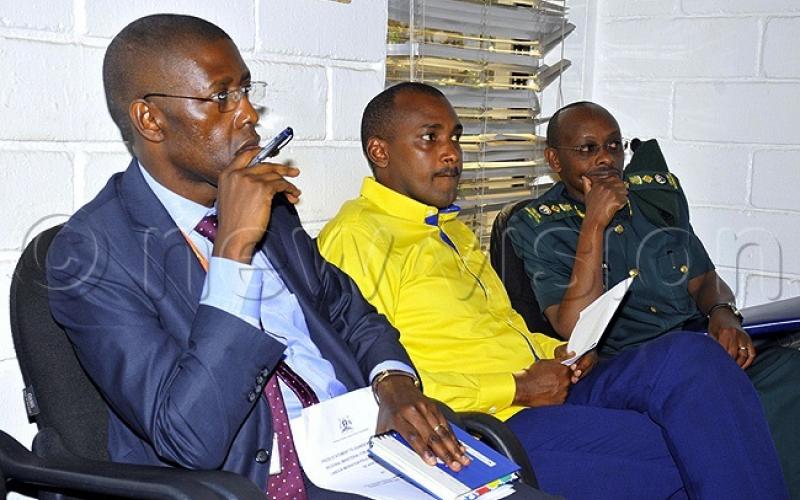
One of the recommendations is the revision of laws to facilitate portability of social security benefits to include migrants workers.
KAMPALA - At the beginning of this week, a regional ministerial forum on labour migration took place in the Kenyan capital Nairobi.
At the heart of the meeting was a discussion on how to harmonise labour migration policies in East Africa and the Horn of Africa.
Uganda's gender, labour and social development minister Frank Tumwebaze attended the two-day meeting, alongside his counterparts from Kenya, Tanzania, Rwanda, Burundi, South Sudan, Somalia, Ethiopia, Eritrea and Djibouti.
On Friday, he addressed a press conference at the Uganda Media Centre to expound on what transpired during the forum.
Wide-ranging objectives
To begin with, the forum looked to doing the following;
• To discuss a harmonized regional strategy on negotiation of Bilateral Labour Agreements with the European Union and Gulf Cooperation Countries.
• To share information on the trends, priorities, needs and interests of member states in order to foster safe and orderly labour mobility within Africa.
• To enhance the knowledge and skills of Government, Stakeholders on the establishment of effective mechanisms of preparing migrant workers for employment abroad.
• To discuss strategies of promoting and protecting the rights of African Migrant workers abroad.
• To strengthen regional cooperation on labour migration policy.
• To cooperate in strengthening the capacity of labour migration management institutions.
• To promote regional cooperation in combating trafficking in persons.
Recommendations
The forum came up with key recommendations;
• The member countries should revise their laws to facilitate portability of social security benefits to include migrants workers.
• The member countries should strengthen the national statistical institutions and data collection mechanisms as well as cooperation on exchange and analysis to inform policies and labour migration governance.
• Member states should establish collaboration on diplomatic and consular assistance for migrants’ workers in particular in countries where some states do not have diplomatic representation, while at the same time promote and support the role of diaspora in assisting migrants workers and protecting their rights in vulnerable situations.
• The registration and regulation of private employment agencies and sharing the information on the registered agencies as well as formation of regional associations to enhance self-regulation amongst private employment agencies should be hamormised.
• Member states should promote access to justice by strengthening consular services including posting labour attaches for effective protection of the rights of migrant workers in destination countries.
Passport renewal
Meanwhile, Brig. Johnson Namanya, the commissioner for citizenship and passport control at the Directorate of Citizenship and Immigration Control, talked of their commitment to working with all government institutions to see out malpractices in labour migration.
He said some people use wrong borders and fall in the hands of wrong people.
Underlining the need for a joint effort in fight human trafficking, Namanya also urged the public to renew their passports ahead of the new passport regime expected in 2021.




